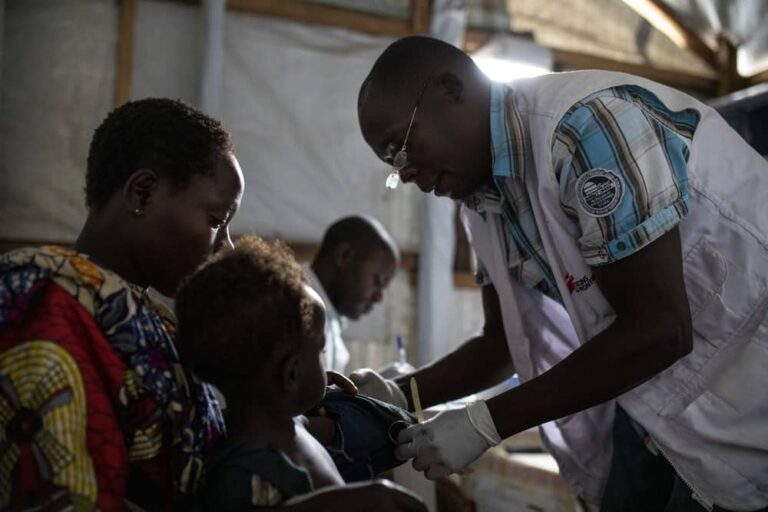Escalating violence in Democratic Republic of Congo (DRC)’s North Kivu province has trapped aid workers and civilians in the city of Walikale, medical charity Doctors Without Borders announced on Thursday.
The violence, which reached the city on 19 March, is a result of clashes between armed groups, including the FARDC and M23/AFC, along with their respective allies.
According to Doctors Without Borders head of programmes in North Kivu, Natalia Torrent, the intensifying conflict has forced 80 percent of Walikale’s population to flee, severely impacting access to healthcare.
She revealed that more than 700 displaced individuals are now sheltering at the Walikale General Hospital, straining already-limited medical resources.
Doctors Without Borders staff stationed at the hospital and their local base have been caught in the crossfire and heavy gunfire has been reported near their facilities.
“Our teams on the ground have to put their medical activities on hold when fighting erupts and are unable to move safely,” Torrent said.
Logistical challenges have compounded the crisis, with no viable road or air routes to deliver humanitarian supplies since mid-January.
Torrent warned that critical shortages of essential medicines could emerge within weeks if access is not restored.
“Within two weeks, our teams on the ground will start facing shortages of essential medicines, further complicating the ability of our teams to provide urgent medical assistance.”
The conflict in eastern DRC is deeply rooted in decades of instability, exacerbated by competition for control of natural resources, ethnic tensions and the presence of numerous armed groups.
North Kivu, in particular, has seen some of the worst violence, displacing millions and creating an ongoing humanitarian crisis.
The latest surge in hostilities underscores the precarious situation for both civilians and aid workers.
Doctors Without Borders called on all warring parties to respect international humanitarian law by protecting civilians, medical facilities and healthcare workers.
The organisation has also urged for safe and unimpeded access to deliver vital medical supplies and services to affected areas.
JN/APA


